Degree Programmes School of Computer Science



The University of St.Gallen, also traditionally called “HSG”, is a place of thought leadership at the very heart of Europe. It is also your chance to become a member of the HSG community, a global community of researchers and practitioners, alumni from across the world. We act in an integrative, committed and cooperative manner. With your desire to shape the world and our practical support, you will be able to achieve academic excellence and translate it
Member of



Over the last few decades, the digital revolution has drastically changed our world. Our lives and the way we do business is highly dependent on technological products, digital processes and big data. Thus, we find it important to gain both profound technical knowledge, as well as the skills and mind-set needed to create impact with new technologies and business ideas in the real world. Combining Computer Science with the world-class expertise of one of Europe’s top Business Schools, we have created unique degree programmes that make this possible.
At the University of St.Gallen (HSG) we are offering a modern and innovative Computer Science curriculum, integrating contents from Entrepreneurship, Management and Business Innovation from day one. It is customized to meet the current expectations and needs of today’s companies and will enable you to design and develop the products and solutions that impact tomorrow’s business and society.
Your university years will be one of the most exciting times of your life. The vibrant city of St.Gallen and our university offer a great possibility for you to make the most of it.
All members of the School of Computer Science are looking forward to welcoming you at the University of St.Gallen.
Prof. Dr. Barbara Weber Dean School of Computer Science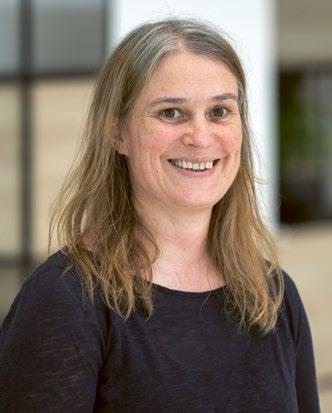
8.6
Everyone measures success differently. If for you it is the possibility to cooperate with leading minds, then you will appreciate the personal atmosphere on the campus of the University of St.Gallen (HSG). Here you take a special route, namely: your own. You will quickly realise what you stand to achieve when you have access to over 30,000 alumni, a highly qualified faculty, more than 130 student clubs, and when you can rely on the engagement of everyone in the HSG community: impact in business and society.
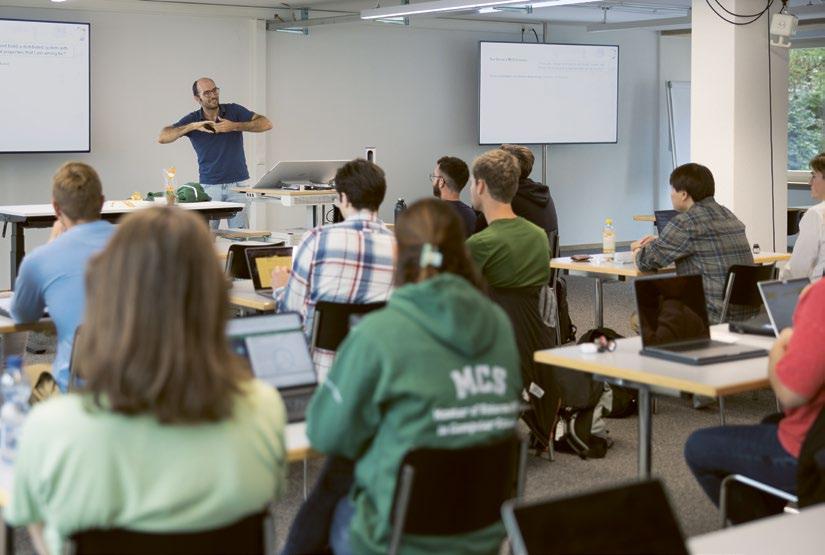

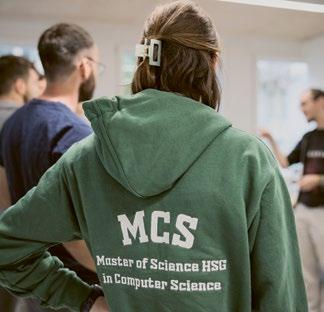
The University of St.Gallen (HSG) is a public institution with an international reputation for excellence in teaching and applied research. Our faculty members have backgrounds in both research and applied fields and are part of a worldwide network. Obtaining new knowledge through scientifically sound methods and translating it into impact – that’s what studying in St.Gallen is about.
You’ll feel right at home in St.Gallen as everything you need to make your student life great is just around the corner: great architecture, relaxing nature, lots of art, diverse culture, a wide range of sports activities, good food, excellent recreation opportunities and exciting night life.
All great things start small. This often shows in our students’ active involvement in student associations where they get involved in projects that resonate with them. However, our large events such as the internationally renowned start-up fairs or congresses like the St.Gallen Symposium are also the result of our students’ engagement. You will not only profit from the opportunity of meeting public figures, investors and alumni, but you will always benefit from our unique and modern degree programmes – and the special feeling of being in a vibrant place called St.Gallen.
At the University of St.Gallen (HSG) we have created unique degree programmes, which are customized to prepare our students for the digitalised world. By introducing Computer Science to one of Europe’s top business schools, we have created a rock-solid and cutting-edge Computer Science curriculum with contents from Entrepreneurship and Business Innovation, that is unique in Europe. In our degree programmes you will develop skills and knowledge, which gives you the ability to create the products and solutions that impact tomorrow’s business and society.


Many of the greatest innovations in the last few decades have come about through the digital revolution. Studying Computer Science today, it is important to gain both profound technical knowledge, as well as the skills and mindset needed to release new technologies and business ideas into the real world. By integrating world-class expertise and knowledge in the fields of entrepreneurship, business modelling, digital innovation and leadership into our curriculum, we enable our students to not only become Computer Science experts, but also tech entrepreneurs and digital leaders.
Due to the recent foundation of our degree programmes, we have had the opportunity to develop a brand-new, modern and innovative curriculum. This means, you can enjoy newly established courses packed with highly relevant and up-to-date topics, closely related to the state-of-the-art research performed by our young and dynamic faculty members. Accordingly, tutorial sessions have been developed from scratch and you have the possibility to experiment with the latest technologies in our modern lab environments.
It is at the interface between Computer Science and Business that visions and great opportunities for future innovations emerge. Our degree programme is a great incubator for students who want to gain the knowledge, skills, and practical experience to start and manage new business ventures independently – or within an established organization. The University of St.Gallen has a strong culture for start-ups and promoting entrepreneurship. The Startup@HSG team offer excellent coaching and inspiring talent programmes to encourage and challenge bright and talented entrepreneurs.
Our teaching draws upon the excellent research conducted by our faculty and their group members. Our research groups are conducting basic and applied world-class research in collaboration with other scientific institutions and industry partners both regionally and internationally. Understanding how theory can be applied into real world business cases is another important and valuable element in our teaching.
Being a medium-sized department the intake of students per year is relatively small. Studying with us, you will experience a friendly atmosphere, where every-one is known by name. Our small faculty and the small classes at both Bachelor’s and Master’s level, facilitate a supportive and inspiring learning environment. Our students offer a great deal of support to one another and many of them team up to study together throughout the semester. The members of our department have the reputation of being open and easy-going and our students highly appreciate the close and informal interaction with both the faculty members and the administration team.
Why Computer Science in St.Gallen?

Applied in both teaching and research Skills for the future


Supportive environment and friendly atmosphere

At the University of St.Gallen we are offering modern and innovative Computer Science degree programmes at different educational levels. By integrating contents from Entrepreneurship and Business Innovation, we have created unique degree programmes, which enable our students to shape the world through digital transformation.
The Bachelor in Computer Science (BCS), launched in 2022, is the latest addition to our degree programme portfolio. It is mainly taught in German, with a few courses offered in English. Graduating from our Bachelor in Computer Science you will hold a Bachelor of Science, B.Sc., degree. More Information about the programme structure and content can be found on the following pages (14 – 17), or on the website of our Bachelor in Computer Science, bcs.unisg.ch
The Master in Computer Science (MCS) offers a unique combination of technology and entrepreneurship on Master level, with specialisations in Data Science or Software and Systems Engineering. The Master Programme was launched in Autumn 2021 and is taught in English. More information about the programme structure and content can be found on pages 18 – 21 or on the website of our Master in Computer Science, mcs.unisg.ch
The Ph.D. Programme in Computer Science (DCS) is a highly individualised programme. It prepares doctoral students for a career in academia or in research and development groups in other environments. Read more about our doctoral programme on pages 28 – 29, or on our website, dcs.unisg.ch
“The University of
combines world class expertise and knowledge in the field of business and especially entreupreneurship with Computer Science. Studying Computer Science at the HSG you get the best of both worlds.”
Julius, Computer Science Student
At the University of St.Gallen, we have revolutionized Computer Science education: The University of St.Gallen has a long tradition as one of Europe’s top business schools. Along with this, students develop integrative and market-oriented ways of thinking. This foundation runs through the various programmes and is also a cornerstone of the Computer Science degree programmes.
The Bachelor’s programme in Computer Science at the University of St.Gallen is unique in that it provides a full basic education in Computer Science, but also covers the fundamentals of the relevant subjects in entrepreneurship and business innovation. Graduates are therefore not only fully-fledged Computer Scientists. They also have a good understanding of companies (business administration), phenomena of the economy (economics) and legal frameworks (law). This creates a new educational profile: Entrepreneurial Computer Science.
This degree programme is designed specifically for students who are driven by their interest in technology and, at the same time, would like to impact business and society. There are no prerequisites for studying in the Bachelor in Computer Science. Not even in programming! It is much more important to be curious about how the technological wonders that surround
us work. Furthermore, students will discover how to create Artificial Intelligence models, launch a start-up and learn how software systems are designed.

Would you like to learn how to create new and exiting technological solutions? Can you imagine yourself managing projects or taking on responsibility in leadership positions? Have you ever played with the thought of founding a start-up or contributing to the digital transformation in companies? Then the Bachelor in Computer Science at the University of St.Gallen is the right place for you.
The Bachelor of Science (B.Sc. HSG) in Computer Science consists of 180 ECTS, which are typically completed in a period of study of three years. It provides students with sound technical knowledge of Computer Science. Additionally, entrepreneurial topics form an integral part of the study programme. Accordingly, the curriculum consists of primarily technical subjects in Computer Science (75 %) and entrepreneurial and contextual subjects (25 %). This optimally prepares students for a career as a computer scientist, tech entrepreneur or in a tech - related management position. The study programme is divided into two phases. The first phase comprises two semesters and is also called the ’Computer Science Assessment Year’.* It covers the basic skills and knowledge for the sub-sequent phase. Only those
who have successfully completed the assessment year and passed the general accounting exam, which is mandatory university-wide, can move on to the second phase. The assessment year can only be completed on a full-time basis.
The second phase serves to deepen and broaden the knowledge in Computer Science. In addition to the core Computer Science and business-related courses, it includes electives in contextual subjects (social sciences and humanities), a language course, indepth electives in Computer Science, a bachelor project and the bachelor thesis. A more detailed overview of the subjects can be found in the illustration of the curriculum.
*The Computer Science Assessment Year is fundamentally different from the Assessment Year in Economics and Law. Due to this, it is not possible to transfer between the B.Sc. and the B.A. degree study tracks.
Graduates have the opportunity to enter the job market directly after their bachelor’s degree, to launch a startup, or to pursue a master’s degree. If you are into working after completing your bachelor’s degree, you can work in programming, product development, or digitisation projects in small to large companies. At the same time, thanks to the entrepreneurial subjects, graduates have the necessary skill set to soon grow into management positions or even start their own companies. Perhaps the next tech unicorn will emerge from your ideas?
Those who wish to further expand their knowledge after the Bachelor’s degree and enjoy the entrepreneurial spirit of our degree programme will find a seamless continuation in the Master of Computer Science at the University of St.Gallen; however, you can also attend Master’s programmes at other universities.
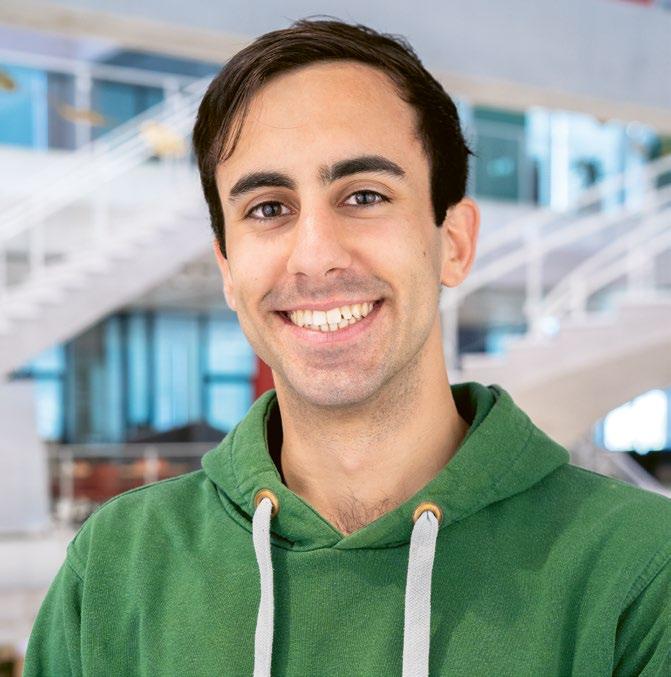

For the BCS, the general admission regulations of the University of St.Gallen for Bachelor programmes apply. This means that students must have a recognised Swiss maturity certificate or an equivalent foreign certificate. Due to legal admission restrictions, foreign students can only be admitted to the university by passing a selection procedure. admissions.unisg.ch
The BCS is taught in German. A few courses are offered in English.
Together we are stronger: Already during the StartWeek you will work on interesting topics together with your fellow students.
One week before the start of the lectures, all students in their first year come together on campus to familiarize themselves with the university environment. The aim of the StartWeek is to officially welcome the new students to the University of St.Gallen and to prepare them optimally to their “life as a student”. Each Start Week is dedicated to a specific topic. The students get the chance to sample what studying will be like by solving a case study on that topic. In addition to the case study, the students receive an introduction to the administrative procedures related to studying at the university, the IT infrastructure and the university library. During the StartWeek you will also have the possibility to attend social happenings, where you will get to know your fellow students.
startweek.unisg.ch
Here you can get an insight into the StartWeek: unisg.link/StartWeek


We offer you an innovative programme to obtain your M.Sc. in Computer Science, either with a specialisation in Data Science or in Software and Systems Engineering. Our modern curriculum, which combines Computer Science with relevant skills in management and entrepreneurship, will prepare you for careers such as tech entrepreneur or an executive position in a technology company. Benefit from close mentoring by our faculty, our unique campus culture, the clubs and associations of HSG’s Student Union, and the many opportunities that St.Gallen offers.
The Master’s programme in Computer Science will equip you with solid competencies – in both theory and application. The specialisations of our programme in Data Science and Software and Systems Engineering will be complemented by foundation courses such as Cybersecurity and Human-Computer Interaction. Together, these courses will equip you to:

– extract knowledge from data and use it to understand markets, products, and people.
– gain expertise in Natural Language Processing and its application, such as chatbots, voice assistance, competitive analysis, market research and social media analysis.
– learn how to build self-learning systems to change the world with artificial intelligence.
– create autonomous, adaptive and interactive systems that can cope with real-world complexity at planet-scale.
Tailored courses on entrepreneurship topics will help you to develop a personality and a skill set not only as a computer scientist, but also as a leader or entrepreneur in a world that is driven by Computer Science and Information Technology, or as an integral part of innovative companies on local and international scale. You will learn to innovate, design and implement cutting-edge technology and use it to create proofs of concept, prototypes and products that will succeed on the market! You will benefit from small student groups, close interaction with the Computer Science faculty, and plenty of possibilities for being part of the university’s research projects in Computer Science and in multidisciplinary settings. A wide range of events offers you the great opportunity to expand your personal network with the various student communities at HSG.
The Master’s programme in Computer Science is intended for students with an academic background (undergraduate or early graduate) in Computer Science or in a related subject. The programme is aimed at students who are interested in specialising in one of our core areas. We furthermore welcome applications from students with an undergraduate degree in related subjects (e. g. Business Informatics or Electrical Engineering) who will have the opportunity to demonstrate their strong knowledge of Computer Science during the admission process. The integration of entrepreneurship topics into the curriculum is an important part of our concept. That is why we expect our students to work diligently on these topics as well as to develop the related skills.
Core Studies Contextual Studies
Specialisations
Data Science (24 Credits), e. g.:
– Data Analysis
– Machine Learning and Deep Learning
– Natural Language Processing or Software and Systems Engineering (24 Credits), e. g.:
– Engineering of Event- and Process-Driven Systems
– Ubiquitous Computing and the Internet of Things
– Web-based Autonomous Systems and Management and Entrepreneurship (12 Credits), e. g.:
– Business Model Design
– Entrepreneurship
– Performance Management
– Leadership
– Advanced Software and Systems Engineering
–
– Data
– Human-Computer
Integrative Master Project (3rd semester)
Master’s Thesis (4 th semester)
Skills e. g. rhetorical techniques, writing skills
Areas of Concentration e. g. Legal, Social, Ethical Aspects of Computer Science / Portfolio Seminar
Computer Science and Information
Technology are ubiquitous in today’s world. The perspectives for graduates are wide-ranging. With an HSG degree in Computer Science you will be well equipped to:

– become a technology entrepreneur or an executive in an information technology-related function.
– shape companies on local and global scales from within, as an expert and key member of innovation teams.
– develop software products that meet the needs of your customers.
– work on interesting and relevant innovation projects in a consulting firm.

– pursue an academic career researching topics of the future.
The Master’s programme in Computer Science is designed to be completed in four semesters (120 ECTS). You will attend compulsory courses in Computer Science, select from the specialisations, and enrich your curriculum with management and entrepreneurship courses, and electives from our contextual studies.
You will attend compulsory courses in Advanced Software and Systems Engineering, Cybersecurity, Data Science, and Human-Computer Interaction, which together form the basis of the programme.
You will select one of the specialisations, either Data Science or Software and Systems Engineering. Across the specialisations, we offer a variety of courses on advanced Computer Science topics such as Data Analysis, Machine Learning, Deep Learning, Natural Language Processing, Agile Software Development, and Autonomous, Adaptive and Interactive Systems. Among these, you may choose those courses that suit your interests best and are welcome to mix in courses from the complementary specialisation.

You will select courses in management and entrepreneurship from the portfolio of tailored courses for Computer Science students. Here, you will find courses on topics such as leadership, entrepreneurship, finance, marketing and strategy.
The integrative project will enable you to combine your Computer Science skills with the insights you gained from your management and entrepreneurship courses. You will apply what you learned in a real-world use case, often in close collaboration with industry partners. The Master’s thesis will enable you to concentrate on a research question in a specialised subject area. You will be supervised by a faculty member and closely collaborate with her or his research team. An excellent Master’s thesis will open the opportunity to pursue an academic career.
As a unique and valuable element of each Master’s programme in St.Gallen, the contextual studies offer a wide range of topics covering social, economic and legal aspects of technology. The integrative portfolio seminar enables you to apply your knowledge from the Computer Science courses in an interdisciplinary context.
An academic degree in Computer Science or equivalent, with at least 180 credits.
– Applicants with an academic degree – from a University of Applied Sciences or – from another discipline, which is only partly recognised as equivalent or – from the University of St.Gallen, but not in Computer Science, will have to pass an admission test and provide evidence of adequate knowledge of Computer Science.
– International students are admitted according to the university-wide admission process for foreign students.
Please consult our website for detailed information about the admission criteria as well as for registering to the study programme. admissions.unisg.ch
The MCS is taught in English.
University of St.Gallen (HSG)
School of Computer Science
Rosenbergstrasse 30
CH-9000 St.Gallen +41 71 224 25 98 mcs@unisg.ch mcs.unisg.ch
Your studies in the Master's Programme in Computer Science (MCS) begin with the Integration Week, which takes place two weeks before the start of the semester. Thematic introduction: You will receive inputs on core topics of the degree programme. Building a community: The strong cohesion of our student community is one of the strengths of the MCS. Already during the Integration Week you will have numerous opportunities to get to know the other students of our department and the faculty, be it at a joint lunch, on an excursion or during our hike to Seealpsee in the Alpstein mountains. Practical tips for studying at the MCS: We provide you with practical tips and detailed information to help you get started.
In 2021, Jenestin Anthonipillai joined the very first class of the Master’s degree programme in Computer Science at the University of St.Gallen (HSG). Being a part of this journey he has experienced both the integrative learning environment and the entrepreneurial spirit of our university.

What is your educational background?
I have a bachelor’s degree in Computer Science from the Zurich University of Applied Sciences.
Where do you live?
I live in Winterthur and always commute to St.Gallen for the lectures.
Do you have any hobbies? Are any of them related to Computer Science?
I like to go jogging and from time to time I lift weights. I like to program my robotic arm to perform certain motions in the programming language C.
Why did you decide to study Computer Science?
I always knew that Computer Science would play a dominant role in our lives. I mean, smartphones, laptops but also Google, Instagram and Netflix play a central role in today’s life. These devices and platforms are relevant not only at work, but also in our personal lives and everywhere in between, and they have changed the society forever. While it’s one thing to use such tools, it’s another to understand how they actually work. For example, Computer Science reveals how data flows through the Internet, how an iPhone streams video, how a car calculates a route, or how the Internet uses search engines to provide millions of answers to questions within fractions of a second.
What made you decide to study Computer Science at the University of St.Gallen?

The reason why I chose to study Computer Science at the University of St.Gallen is the unique integration of subjects from the Business School into the Computer Science curriculum. I can specialize in Data Science or Software and Systems Engineering, and at the
same time I get an insight into Entrepreneurship, Management and Business Innovation. I am confident that this combination of subjects will lead to unique possibilities in my future career.
What do you appreciate about studying at the University of St.Gallen? Studying Computer Science at the University of St.Gallen gives me a sense of infinity, as I can become an expert in different fields. On Campus and during courses, I have met students from other disciplines who also bring
different skills and experiences with them. These connec tions enrich my everyday study life and I find them highly inspiring. I also appreciate the close contact with the professors, with whom I can be on a first-name basis. I had the chance to found the Geniusbar together with the president of the SQUARE. Geniusbar is a regular event where Business and Computer Science students get together to join a talk, followed by a fruitful discussion, pizza and drinks.
Student for a day
What is it like being a Computer Science student in St.Gallen? Try it out, by letting one of our students show you around. Register by email to mcs@unisg.ch
“Studying Computer Science at the University of St.Gallen gives me a sense of infinity, as I can become an expert in different fields. On Campus and during courses, I have met students from other disciplines who also bring different skills and experiences with them. These connections enrich my everyday study life and I find them highly inspiring.”
Jenestin, Computer Science studentThe first generation of Master Students on a hike to Seealpsee during the Integration Week in 2021.
In August 2020, the School of Computer Science (SCS-HSG) was founded as the sixth school at the University of St.Gallen (HSG). Our school is the first to introduce engineering sciences to the University of St.Gallen and aims to combine profound technical knowledge within the field of Computer Science with entrepreneurial thinking.


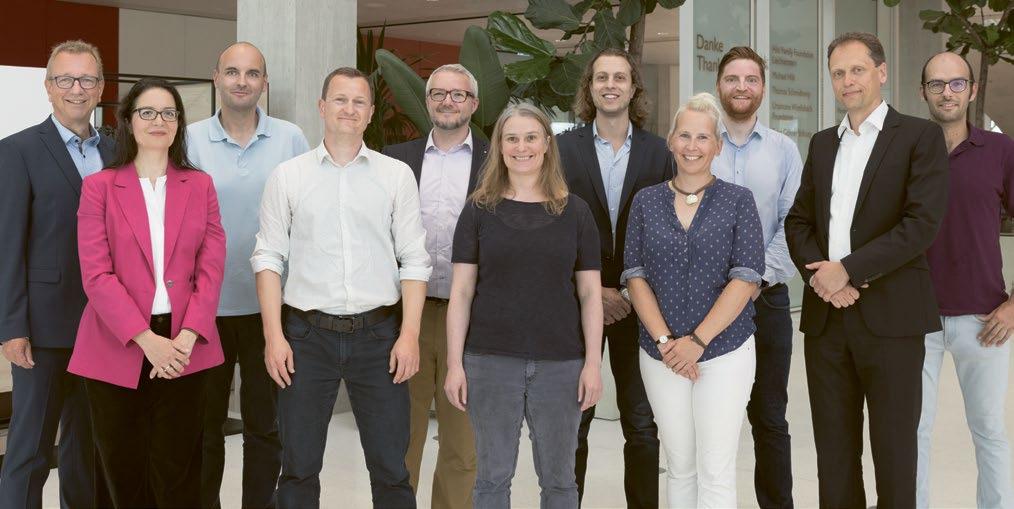
The School of Computer Science was founded as a part of the IT education initiative of the Canton of St.Gallen. An initiative which seeks to strengthen the IT education on all educational levels and prevent the shortage of skilled labour in this domain. We believe that a Computer Science school at a university with a long tradition as a renowned business school, gives us unique opportunities for excellent education, research and collaboration.
Digitization is and will remain a topic of great importance and the need for Computer Science professionals is increasing at a rapid pace. Its societal relevance requires from the University of St.Gallen to provide appropriate academic educational pathways that take this dominant topic into account. The School of Computer Science provides futureproof programmes with “entrepreneurial Computer Science” at its heart, along with a wide range of introductory courses to Computer Science for other schools at the university. Students of the Computer Science programmes at the University of St.Gallen gain competencies in the technical
domain of Computer Science and entrepreneurial and managerial domains. We enable our students to drive the digital transformation as entrepreneurs or managers in small and large organisations.
The faculty of the School of Computer Science currently consists of 13 (and growing) young professors from all over Europe. Our faculty covers a wide range of highly relevant research topics within the field of Computer Science and are is organized in eight research groups. By contributing to the world-class teaching environment and research excellence of the University of St.Gallen, they have already made a great impact on the way we do teaching and research at our university.
The School of Computer Science is located in the city centre, at Rosenbergstrasse 30 and Torstrasse 25, both in walking distance from the university campus.
 Torstrasse 25 is situated within two minutes walking distance from St.Gallen Marktplatz.
Opening ceremony of the School of Computer Science at Rosenbergstrasse 30.
As a part of the IT education initiative in the Canton of St.Gallen we are educating the next generation of computer scientists.
The faculty members of the School of Computer Science together with Executive Director, Dr. Jochen Müller (to the very left).
Torstrasse 25 is situated within two minutes walking distance from St.Gallen Marktplatz.
Opening ceremony of the School of Computer Science at Rosenbergstrasse 30.
As a part of the IT education initiative in the Canton of St.Gallen we are educating the next generation of computer scientists.
The faculty members of the School of Computer Science together with Executive Director, Dr. Jochen Müller (to the very left).
Artificial Intelligence and Machine Learning; The AIML chair is covering the area of traditional machine learning and deep neural networks. Our research focuses on representation learning with applications to text-to-speech generation, computer vision and remote sensing, and financial time-series data.

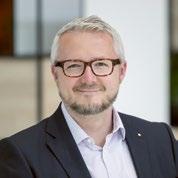

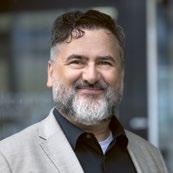

Cyber Security;
Our research focuses on information security and applied cryptography. Our main goal is to safeguard communications and provide strong security, privacy and efficiency guarantees for real world applications e. g., authentication, secure and private computing
Data Science and Natural Language Processing; Our research is focusing on:
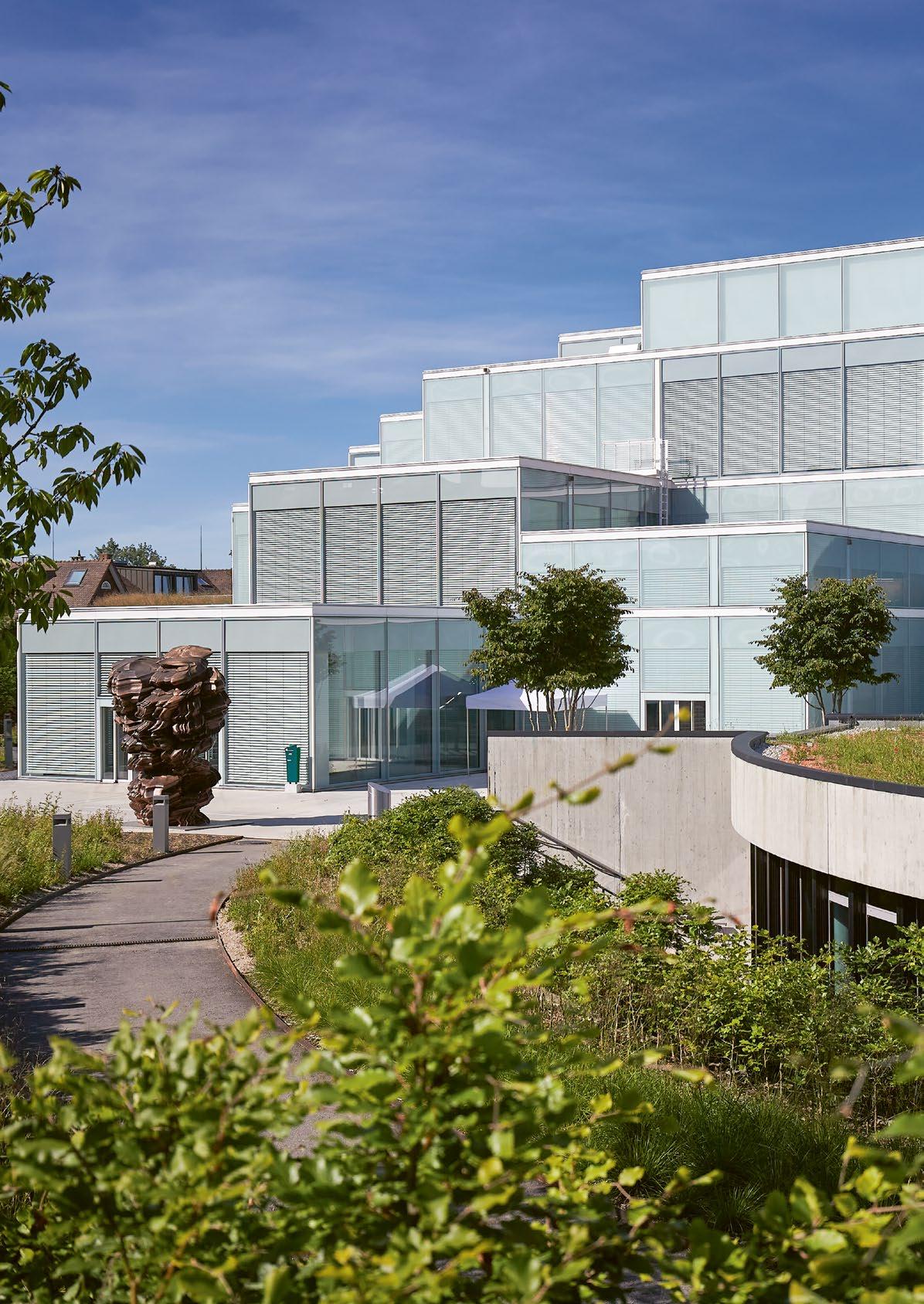
– Data Science, AI, ML, Knowledge Representation;
– NLP, Word-Embedding, Distributional Semantics, Multimodal Semantics;
– Big Data, Linked Data, Semantic Web, Knowledge Graphs
Foundations of Computation; Our research focuses on coding theory and postquantum cryptography. With our results we aim to improve digital communication technologies in their reliability, efficiency and security.

Human-Computer Interaction;
With our research, we want to empower individuals and communities with the information they need to make better data-driven decisions by developing novel user interfaces with them. Our research mission is to fit human and technological needs and empower users when using novel interfaces.
Interaction- and Communication-based Systems;
In our research group, we explore interactions in ubiquitous computing environments. Our focus is on the integration of physical things into the Web, on increasing the autonomy of Web-based systems, and on facilitating interactions between people and systems.
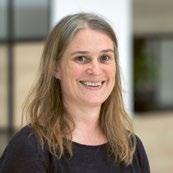
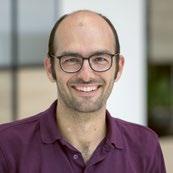
Programming Group; In our group, we enjoy working on Programming Languages and Software Engineering, including languages and architectures for Distributed Systems, Reactive Programming, DevOps Organizations, and Secure Software Systems.
Software Systems Programming and Development; In our research group, we focus on the development and evaluation of software artifacts. We cover topics in the areas of source code analysis, the Internet of Things, and process mining to study and build eventdriven software systems that adapt based on the user’s behaviour and context.
The Ph.D. Programme in Computer Science (DCS) provides a world-class teaching environment, supportive supervisors, and interesting courses on current topics in the field of Computer Science. Our students get prepared for an academic career or for corporate research and development positions. Almost all Ph.D. students enrolled in our programme are also employed at the Institute of Computer Science. Beyond enabling them to cover their expenses, this allows Ph.D. students to engage more deeply with their research topics and the research community.
The DCS Programme is divided into the course-work phase and the dissertation phase. Both phases should be completed within a maximum of five years. The coursework phase takes a maximum of four semesters in which students need to earn 12 ECTS credits from a selection of advanced Computer Science courses. It is also possible to request work on a publication or other Ph.D.-level courses to be credited as part of the coursework phase. The coursework phase ends with the submission of a dissertation proposal and a colloquium on this proposal.
The dissertation phase is focused on advancing one’s own research, increasing the knowledge about the chosen field, and ultimately writing the Ph.D. thesis. Students will attend at least two colloquia during which they discuss their dissertation endeavour. The research phase ends with the submission of the Ph.D. thesis and it succsessful defence.
“The DCS is a great place to do a Ph.D. in Computer Science because the programme provides the freedom to pursue academic research in my field of Machine Learning and many others, as well as to translate it into practice. The institute offers amazing work conditions, outstanding infrastructure with the labs or our DGX-2, and colleagues from all over the world, complemented by the city and nature around it. As all the groups are young, there is a start-up atmosphere. Everyone is motivated, helps each other out and everything is moving fast.”
Konstantin Schürholt Researcher and Ph.D. Candidate at the Artificial Intelligence and Machine Learning Group.

First and foremost, prospective Ph.D. students should ensure that they are eligible for doing a Ph.D. at the University of St.Gallen (HSG). Information about eligibility can be found on the admission page. Questions regarding admission regulations or a preliminary review of one’s application can be directed to admissions@unisg.ch.
Second, Ph.D. students need to find a supervisor that is willing to supervise their Ph.D. The interests of prospective students and supervisors should align. Admission is only possible with a letter of recommendation from the prospective doctoral supervisor. The university does not provide introductions and it is the prospective student’s responsibility to find and convince a supervisor. An overview of possible supervisors can be found on page 27 of this brochure and on our website: unisg.link/dcs-supervisors
Third, students can proceed to fill in the online application form. Various documents need to be uploaded during this process (more information on the admission page). Depending on the date of the application, the Ph.D. studies will start in the fall or the spring semester. admissions.unisg.ch
After finalizing the online application, the documents and formal criteria will be checked. Thereafter, the Programme Committee decides on the admission. Questions about the application process can be directed to the Ph.D. Office: phd@unisg.ch
The specific research topics covered by the researchers at the School of Computer Science are driven by the research groups. Our young faculty has interests in a wide range of areas and Ph.D. students are actively involved in creating new cutting-edge knowledge in these areas. Thereby, they benefit from close interaction between the research groups. A portrait of the groups can be found on our website.
unisg.link/scs-research

The research areas currently investigated at the Institute of Computer Science cover a wide range of highly relevant topics, including artificial intelligence and machine learning, cyber security, data science, foundations of computation, human-computer interaction, interaction- and communication-based systems, programming, and software systems.
Programme language
The DCS is taught in English.

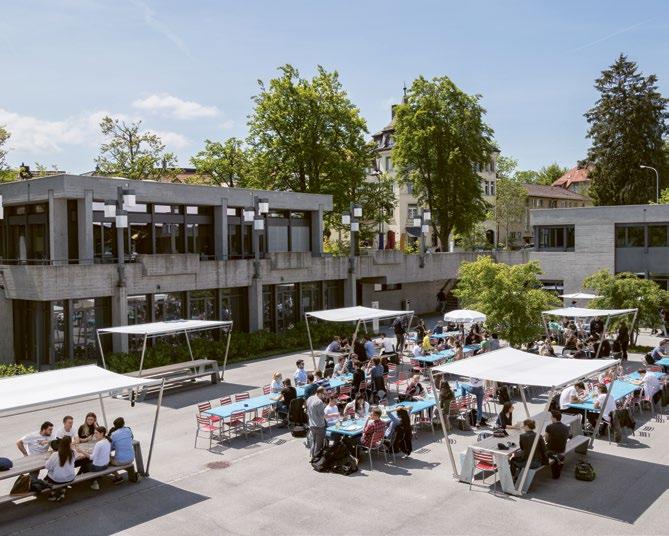
Looking more like a park, our Rosenberg campus in St.Gallen offers not only ideal conditions for studying in beautiful surroundings but also a stunning view of the city. The School of Computer Science is located in the city centre, at Rosenbergstrasse 30 and Torstrasse 25. The distances between the individual areas are short, and the modern infrastructure supports our students ideally in their studying.
Serendipity – when chance encounters inspire great ideas – has been given the perfect space since 2022. Since it opened, SQUARE has been a popular meeting place, thinking space and innovation lab all in one.
SQUARE is where our students meet public figures, faculty members but also members of the general public to discuss current issues and initiate solutions for the future or get directly involved in their development. In a modern atmosphere with high-quality equipment and supported by the latest technology, meeting others has never been so exciting, and venturing new beginnings has never been so easy. hsg-square.ch
Our university library is offering a wide range of literature and digital media within all our study areas. The library was renovated in 2021 and is an ideal place to study and to meet fellow students. The library offers more than 500 working desks for studying and by using the ’seatfinder’ application you will always be guided to the next free working desk. unisg.link/bib
New campus in sight
2025 will be the launch year for the construction of another new university building. When it is completed by the end of the decade, the 31,000-squaremetre new building on the Platztor campus will offer space for another 3,000 students on six floors in the middle of St.Gallen, as well as new rooms for meetings with important representatives of research and teaching.
hsgbaut.ch
St.Gallen has a lot to offer its approximately 80,000 inhabitants: a historically important Old Town, numerous shops, street cafés and restaurants, bars and clubs. The monastery quarter with the Baroque cathedral and the abbey library has been named a UNESCO World Heritage Site.
Situated between the Alps and Lake Constance, St.Gallen also provides ideal conditions for a wide range of leisure and sports activities in the surrounding area. The natural swimming pools “Drei Weieren” are within walking distance of the city centre. stadt.sg.ch
In the heart of the city, our students run the innovative coworking space “theCo”. From 7 a.m. to 10 p.m. seven days a week, workplaces for individuals and groups, design thinking spaces and retreats are available in an interactive and communicative atmosphere.
theco.shsg.ch/en
The University of St.Gallen hosts more than 130 different student associations and initiatives including the Student Union (SHSG). Possible activities range from writing for the students’ magazine prisma, organizing Europe’s biggest student-run startup event START Summit, being part of the committee organizing the renowned St.Gallen Symposium and a wide range of sport associations. shsg.ch/en/clubs
Our sports offer
To keep body and mind in balance, Unisport provides you with a wide range of sports and training opportunities at our own and external sports facilities. On campus, for example, you will find a modern sports hall with a gym, group fitness courses as well as an artificial turf pitch and a beach volleyball court.
Around 270 training instructors professionally supervise you and support you in shaking off the stress of university life. Our programme includes more than 250 training sessions in more than 70 sports every week. Most of our courses and services are available to you free of charge. sport.unisg.ch
Our university restaurant offers a wide selection of tasty cold and warm lunch menus, with a buffet that caters to almost all diets. The campus bar “[ad] hoc” and the “MeetingPoint” downtown at the Blumenbergplatz, are both run by our students and are the perfect place to hang out for a chat, a snack or to study.
Our library is an ideal place to study and offers more than 500 working desks to our students.
Our “Mensa” offers tasty and healthy food, which you can enjoy together with your fellow students. On nice summer days you can even have your meal outside -and best of it all, you do not have to cook for yourselves!
 View from the School of Computer Science at Rosenbergstrasse 30.
View from the School of Computer Science at Rosenbergstrasse 30.
Living in St.Gallen is affordable compared to the other bigger cities in Switzerland and the housing market for students is quite relaxed. St.Gallen is very well connected to other major cities, both in- and outside of Switzerland. This makes travelling very convenient and you can look forward to having your family and friends visiting during your time at the university.
Most international students who come to Switzerland must obtain a visa prior to entering the country. It may take several months for a visa to be issued. Please contact the Swiss Embassy in your home country at an early stage to find out about the relevant procedures and documents to be submitted. In most cases students must prove that they have sufficient financial means to fund their stay in Switzerland. Therefore, they will have to transfer money (currently CHF 24,000) into a Swiss bank account and submit the bank statement with the other documents to the embassy to obtain the visa. Please note that you will need this amount during the first year, and make sure that you can finance the following years as well. eda.admin.ch
The Admissions and Crediting Office assists international students with information regarding entry into Switzerland and residence: admissions.unisg.ch

Various pieces of information about moving to St.Gallen and about health insurance schemes for international students can be found on the website of the city of St.Gallen. Students are required to take out Swiss health insurance unless the Swiss authorities accept their original one. stadt.sg.ch
To be able to fund your studies, you should have about CHF 2200 – 2600 a month at your disposal.
St.Gallen has a wide range of flats and shared rooms to offer, both in the Campus area and in the city centre. It is relatively easy for students to find an affordable accommodation. Rents for a room in a shared flat range from CHF 450 upwards per month. Rent for small private studios range from CHF 750 upwards per month. Offers are available on the Facebook group “Sharing is Caring University of St.Gallen (HSG)”. The Student Union provides more information on the housing market on its website. shsg.ch/marketplace#Housing
Tuition fees are comparatively low in Switzerland because the Swiss Confederation and the cantons subsidise university education.
For an overview of the tuition fees, please consult our website.
unisg.ch
In Switzerland, travelling by public transport is very convenient and St.Gallen is no exception for this. Students are encouraged to obtain the Swiss Federal Railways SBB Half Fare Travelcard in order to save 50 % on all SBB routes and most other railways as well as on boats, postbuses and trams. Another great offer from SBB is the seven25 Travelcard which allow people under 25 to enjoy unlimited travel after 7 pm in the evening.
Train connections at half-hourly intervals and the
St.Gallen is a great place to live and some of the best moments in your student life, will be the ones you share with your flat mates.
motoway directly link St.Gallen with
Airport and all Swiss major cities.
Lectures and tutorial sessions are held both at the Computer Science department and at Campus, all in walking distance from the mail railway station. On rainy days, the no.5 and no.9 buses provide a direct connection to the university campus.
What do On, Planted, Piavita, N26 and Formo have in common? They introduce innovations in their markets, create impact for society –and they have their roots at the University of St.Gallen (HSG). Their founders studied here and have consistently used the know-how of the HSG community.

Young entrepreneurship and proven entrepreneurial spirit also meet, for example, at the Start Summit and Start Hack, two student events with international impact, at which students meet with experts and investors.
startuphsg.com startsummit.ch starthack.eu
Scan to explore our digital campus map.
unisg.link/maze-map
The Open Day in Computer Science is hosted twice a year and is a great opportunity to get to know our Computer Science degree programmes, as well as what student life in St.Gallen is like. During the Open Day Computer Science you have the opportunity to attend a detailed presentation about our Bachelor’s and Master’s degree programme, as well as a taster lecture by one of our professors. The Lab tour is guiding you through our modern and well-equipped labs where you will get an introduction into some of our practical research. openday.unisg.ch
At the Open Days of the University of St.Gallen you can participate in various presentations of all Bachelor’s and Master’s degree programmes of the university. The majority of the Open Days are held in German and take place on Campus. Additionally, both virtual and Open Days held in English are offered.

openday.unisg.ch
Let one of our Computer Science students give you an impression about our degree programmes and student life in St.Gallen, by being a Student for a day. Having a tour around Campus and joining one of our lectures, you will get to meet both students and professors of the School of Computer Science. If you are interested in becoming a Student for a day, please drop us an email on mcs@unisg.ch
University of St.Gallen (HSG) School of Computer Science
Rosenbergstrasse 30 CH-9000 St.Gallen +41 71 224 33 90 scs@unisg.ch scs.unisg.ch
Application / Admissions admissions@unisg.ch admissions.unisg.ch
Student Mobility exchange@unisg.ch exchange.unisg.ch
© University of St.Gallen (HSG) 2022: The information in this publication is correct as of July 2022, but the University of St.Gallen reserves the right to make changes affecting policies, fees, curricula, or any other matter announced in this publication without further notice.
Editorial office: University of St.Gallen
Realisation: VITAMIN 2 AG
Layout and printing: Typotron AG
Photos: Joan Minder, Dominik Reichen,Julien Sarkar, Daniel Ammann, Hannes Thalmann, Anna Tina Eberhard, University of St.Gallen